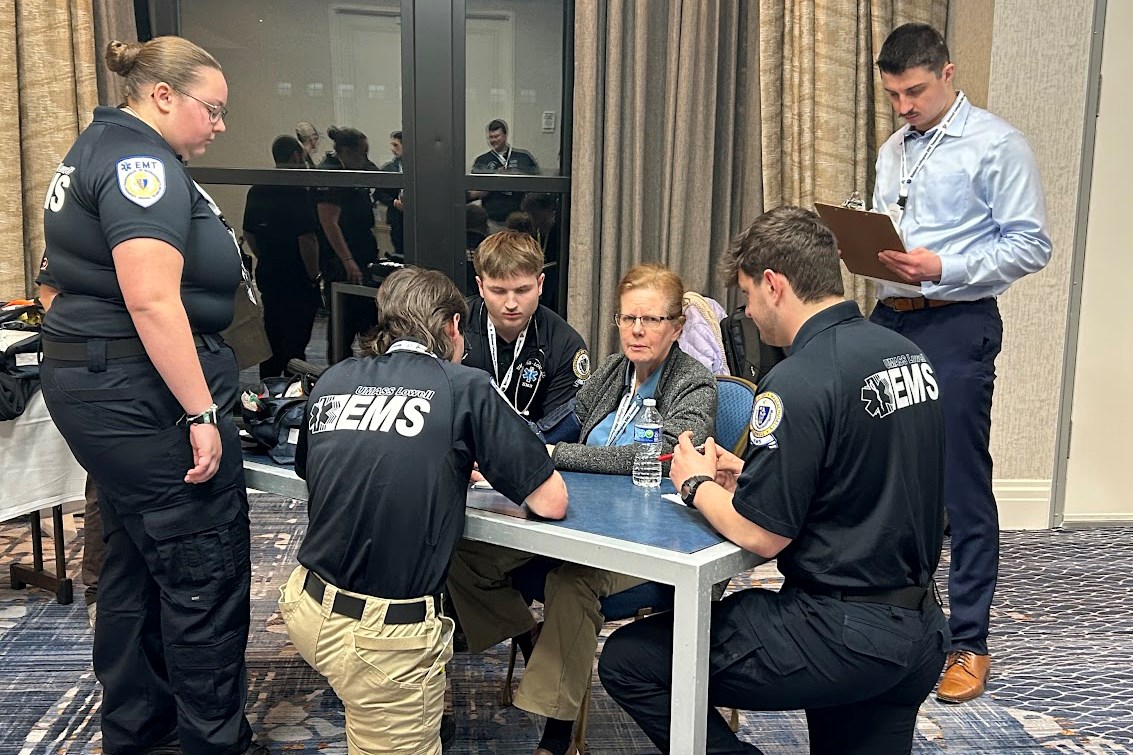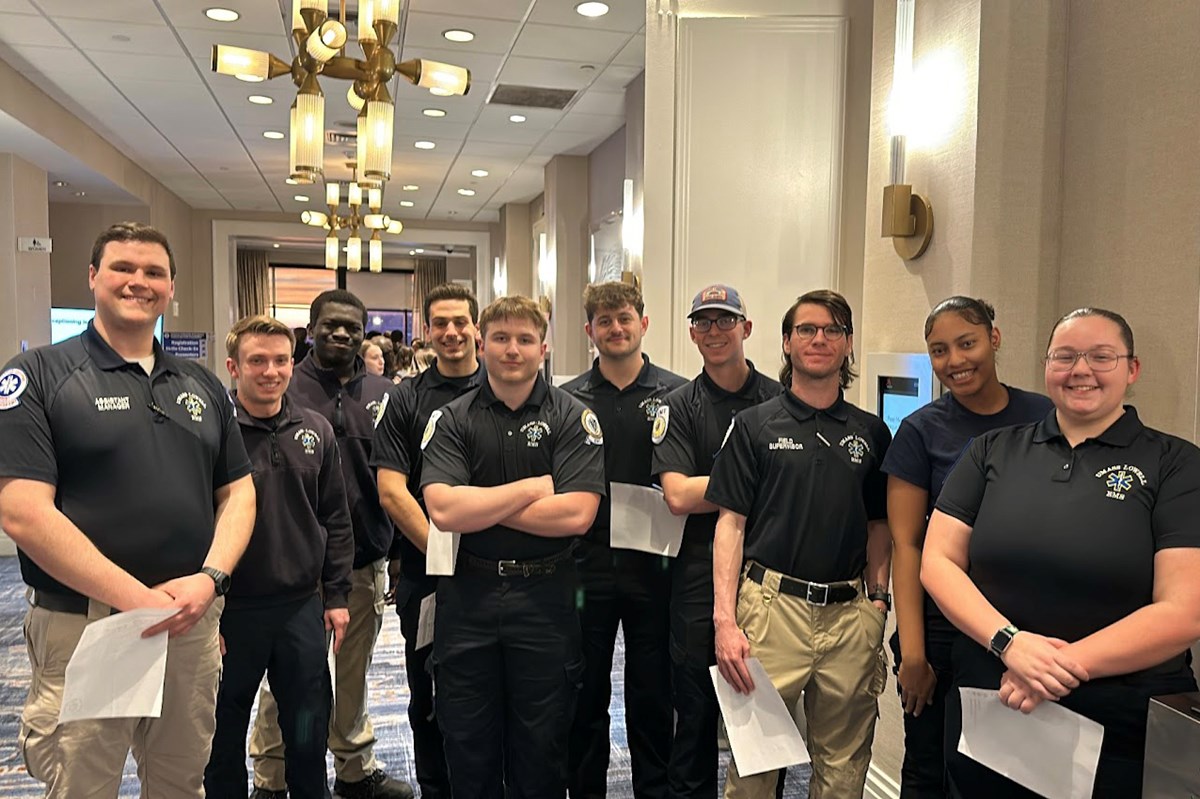Emergency Medical Services Earns Silver Status at National Collegiate EMS Foundation Conference
 Image by UML EMS
Image by UML EMS
04/09/2024
By Ed Brennen
Granted, the chances of a shark attack on campus are slim. But that doesn’t mean UMass Lowell’s Emergency Medical Services (EMS) team isn’t prepared for one.
Ten student emergency medical technicians (EMTs) recently attended the National Collegiate EMS Foundation’s annual conference in Baltimore. One of the speakers was Benjamin Abo, medical director for Discovery Channel’s Shark Week. His presentation on treating traumatic injuries in dangerous locations resonated with several of the student EMTs, including Cooper Ferrari.
“His talk reminded me that even when dealing with a more serious injury, staying calm and applying what we know can save someone’s life,” says Ferrari, a junior exercise science major from Waltham, Massachusetts.
At the conference, UML was recognized by the foundation as a silver-level EMS Ready Campus, its highest designation ever; the university had achieved bronze status in 2018. The recognition is valid for three academic years, but UML can apply for the highest tier, gold, at any time. The university’s EMS team is primarily staffed with UML students who have been trained as emergency medical technicians, and it provides around-the-clock coverage to the campus community.
Asst. Director of Emergency Management David Muse, who accompanied the students to Baltimore, says achieving silver is a “significant milestone” for the EMS program.
 Image by UML EMS
Image by UML EMS
“It’s a testament to our program’s excellence in emergency medicine, emergency management and disaster preparedness, and it highlights our dedication to maintaining a safe campus environment,” says Muse, who joined UML last December from Mass General Brigham, where he was enterprise emergency preparedness manager.
Nearly 1,200 representatives from more than 100 colleges and universities attended the conference, where they learned the latest in medical and trauma response, disaster preparedness and emergency management. Students also participated in a skills competition that tested their ability to treat a simulated patient.
“The competition gave me a lot more confidence in my skills. I proved to myself that I can work efficiently with a team,” says Caralynn Spinosa, a first-year applied biomedical science major from North Andover, Massachusetts. “It encouraged me to strive for roles with more responsibility in the future.”
Several of the sessions focused on emotional intelligence and treating patients with empathy.
“It’s imperative to get your patient comfortable with you because, at the end of the day, EMTs are strangers” providing care in a crisis, says Zachary Fornal, a junior criminal justice major from Shrewsbury, Massachusetts.
Formal adds that his career options as an EMT “expanded tenfold” after hearing from doctors, medics, military personnel and business owners at the conference.
For Charles Poku-Mensah ’23, the conference opened his eyes to the danger of burnout.
“When I first joined EMS, I was under the impression that this is a field where you work 24/7 whenever you are available. … I learned at the conference that this is not a sustainable way of working,” says Poku-Mensah, a mechanical engineering alum from Worcester, Massachusetts. “Taking breaks, even in periods when I am not doing too much, is crucial for long-term commitment.”
Other students attending the conference were UML EMS Asst. Manager Joe Mendes, Field Supervisor Joseph Tropeano and EMTs Steven Poliquin, Justin Cahill, Dillon Neveu and Anaya Galvao.
During a roundtable discussion with campus EMS leaders from across Massachusetts, the UML students connected with members of Boston College EMS. They now plan to visit each other’s campuses and learn about their operations.
“Building connections like these truly highlights the sense of community brought about by collegiate EMS,” says Mendes, who now plans to apply for Massachusetts’ regional coordinator position with the National Collegiate EMS Foundation.
